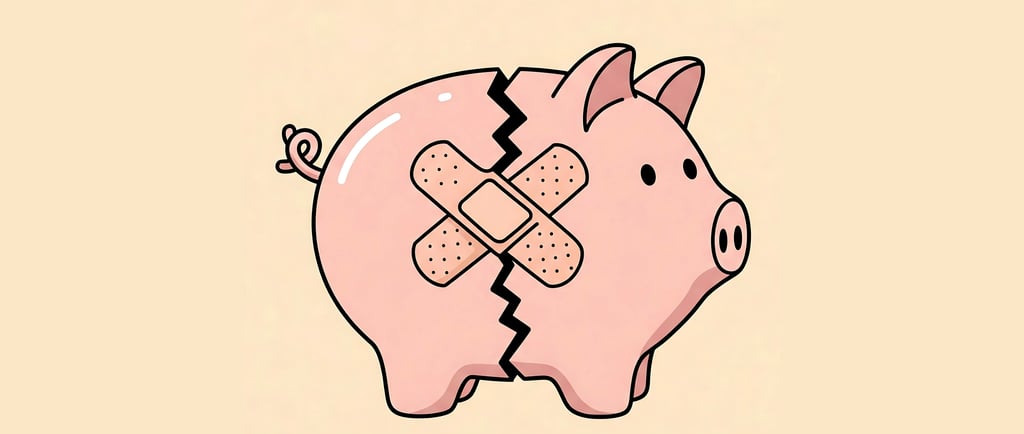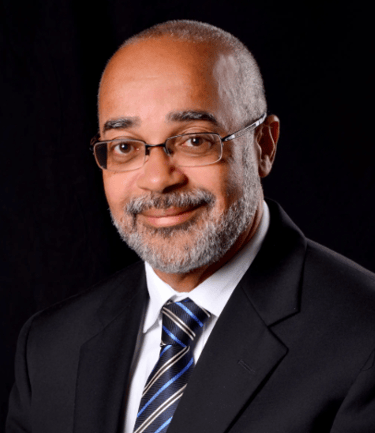ECCB Report Finds Financial Literacy in the ECCU is Low: Most Feel Money Is for Spending
BY MELISA BOUTINFINANCIAL EDUCATION
4/8/20254 min read
In 2023, the Eastern Caribbean Central Bank released the results of its baseline Financial Literacy and Financial Inclusion Survey (FLFI) among adults in the Eastern Caribbean Currency Union countries. Conducted in partnership with the World Bank and the Organisation of Eastern Caribbean States Commission, the survey involved 7,037 adults, 18 years and older, and compared financial literacy rates and financial inclusion in Anguilla, Antigua and Barbuda, Dominica, Grenada, Montserrat, Saint Kitts & Nevis, St. Lucia, and St. Vincent & the Grenadines.
Here are ten (10) key findings from the ECCB’s FLFI report.


The FLFI revealed that just 9% of survey respondents passed the minimum target score on all financial literacy components of financial knowledge, financial behavior and financial attitude. The overall financial literacy score for the ECCU is 61%.
1|Financial Literacy is Low across All ECCU Countries
Elements of the Financial Literacy Score
Financial Attitude: 20% of adults met the minimum target score for financial attitude. Adults in the ECCU tend to focus on short-term spending, over long-term saving and planning.
Financial Behaviour: 60% of adults met the minimum target score for financial behavior, yet just 40% always pay bills on time. 20% of adults reported borrowing to make ends meet.
Financial Knowledge: 50% of adults met the minimum target score for financial knowledge. While nearly 90% understand the link between inflation and the rising cost of living, only 32% of adults understood the concept of compound interest.
While most of the survey respondents shared that they “rarely share passwords with friends or post finances publicly online”, less than 20% of them verify whether online providers are regulated. 40% of them “rarely or never” change their online passwords. Awareness about ECCB’s Central Bank Digital Currency, DCash, was also low – only 20% of respondents were aware of DCash.
2|Digital Financial Literacy is Very Poor in the ECCU
Most respondents hold at least one account at a financial institution. The data showed that among the respondents with bank accounts at a commercial bank, about 63% had a savings account at this type of financial institution, and close to 12% held a checking account there. 50% of all respondents to the FLFI were credit union members.
3|90% of Adults have At Least One Bank Account


Of those without an account at a financial institution, 42% identified the penalty for insufficient funds as a barrier to maintaining a bank account, while 19% blamed the documentation requirements to open an account.
4| Insufficient Funds Fees & Multiple ID Requirements Drive Financial Exclusion
Buying property, starting or growing a business, and becoming debt-free were the top three financial goals of the adults surveyed. To achieve them, respondents chose saving or investing as their main strategies.
5| Buying Property, Growing A Small Business & Paying Off Debt Are Top Financial Goals


The big picture is that financial literacy is low across the ECCU, with an average score of 12.2 out of 20
- Dr. Didacus Jules, Director General of the OECS
(Source)
There is a low usage rate of modern payment options in the ECCU. Of the respondents who reported making regular and recurring payments in the 12 months, 90% of them made payments mainly in cash.
6| Cash is the Most Used Payment Method
44% of adults reported they would have to borrow from a financial institution or family if faced with a major expense. 20% of them used one of 12 different borrowing options to make ends meet. Respondents opted to borrow from family and friends, and/or the community, most often.
7| 2 in 5 Can’t Pay for A Major Expense Without Borrowing
90% of adults surveyed were familiar with at least 5 out of the 18 financial products listed in the survey. Overall, 55% of respondents in the ECCU chose at least one of 18 products in the prior two years. Anguilla had the highest number of respondents who bought a financial product in the most recent two years.
8| High Awareness of Financial Products, With Low Usage Rates
Top 5 Financial Products with High Awareness in the ECCU
Savings Account
Insurance
Mortgage
(Source)
Credit Card
Car Loans
The FLFI report found that respondents without internet access had the lowest levels of financial literacy. Individuals earning a monthly income of $3,000 EC or more had the highest levels of financial literacy scores.
9|Income and Internet Access Impact Financial Literacy
Only one in 25 persons, or four percent of adults in the ECCU, invest in the Regional International Capital Markets.
10| Just 4% Invest in Regional Securities
Get smarter about money and finance
Sign up for free online financial education from Your Money Worth App 🎉
Financial Education & Financial Wellness in One Online Platform.
Get early access. It's free!
Built with ❤️ in Saint Kitts & Nevis 🇰🇳
Melisa is a Certified Financial Education Instructor, author and founder of the Financial Education & Financial Wellness Platform Your Money Worth App. Melisa is all about driving collective financial wellbeing. Learn more about her here.


